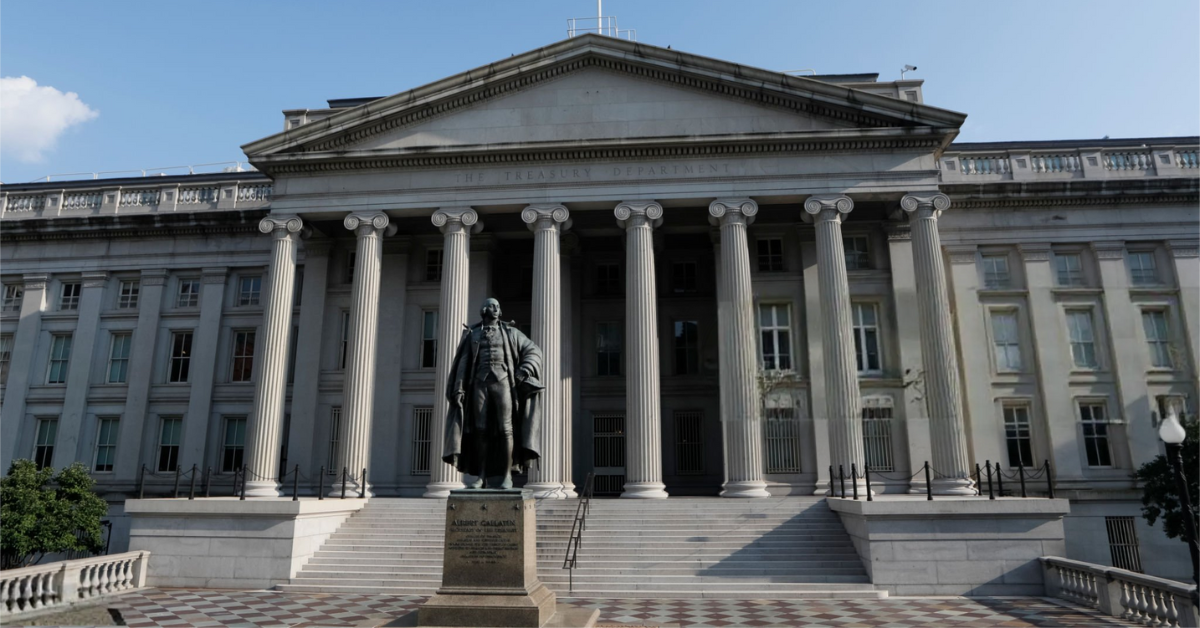U.S. Treasury Announces New Sanctions to Disrupt Iranian Oil Trade, Terror Group’s Financial Backing
The U.S. Department of the Treasury’s Office of Foreign Assets Control (OFAC) has recently announced two significant sets of sanctions targeting illicit financial networks tied to Iran and its ally in Lebanese militant group Hizballah, reinforcing the U.S. government’s commitment to curbing destabilizing activities in the Middle East. These actions, taken during a ceasefire in the “12-Day War” between the U.S., Israel & Iran, are the first to be issued against Tehran’s energy sector over this period, and aim to further disrupt Iran’s oil smuggling operations and Hizballah’s sanctions evasion schemes – each fueling terrorist activity and further undermining the safety and stability of the region as a whole.
On July 3rd, 2025, OFAC imposed sanctions on a sprawling network of companies and vessels involved in the illicit trade of Iranian oil, much of which has directly benefited Iran’s Islamic Revolutionary Guard Corps-Qods Force (IRGC-QF), a designated Foreign Terrorist Organization. The latest sanctions target Iraqi-British businessman Salim Ahmed Said, the primary orchestrator of a major scheme to smuggle Iranian oil by disguising it as Iraqi oil – and in some cases, blending it directly with legitimate Iraqi oil – before later selling to Western buyers. Said’s network, operating through now-sanctioned companies such as VS Tankers FZE and VS Oil Terminal FZE based in the UAE, has reportedly employed various tactics including ship-to-ship transfers of oil and forged/fraudulent import and export documentation to evade sanctions. Said himself has also been accused of bribing key members of various Iraqi government bodies, including parliament, during this process while dishing out millions of dollars in illicit kickbacks in exchange for forged vouchers allowing him to sell Iranian oil as if it originated from Iraq.2 These operations have subsequently enabled Iran to generate billions of dollars in revenue while evading staunch international sanctions against them, with vessels like the DIJILAH and others transporting millions of barrels of Iranian oil unimpeded.
The Treasury’s latest measures have also targeted Iran’s “shadow fleet,” a collection of non-sanctioned vessels used to further obscure the origins of Iranian oil. Multiple tanker companies based in Singapore, Cameroon, Panama, Seychelles, the British Virgin Islands, and Comoros (amongst others) have jumped in on this highly-lucrative scheme, collecting millions of dollars in their own right for shipping tens of millions of barrels of Iranian oil and other petroleum products worth billions of dollars to buyers throughout Asia and other regions of the world. As a result, a total of 9 entities are being sanctioned for operating in the petroleum sector of the Iranian economy in direct violation of previous U.S. sanctions. Additionally, OFAC issued new sanctions against multiple entities linked to the IRGC-QF, including Seychelles-based White Sands Shipmanagement Corp. and Liberia-based Dima Shipping & Trading Company, for supporting the Al-Qatirji Company, which facilitated hundreds of millions of dollar’s worth of oil sales for the IRGC-QF. These actions, taken under Executive Orders 13902 and 13224, mark the eighth round of sanctions targeting Iran’s oil trade since President Trump’s directive for a maximum pressure campaign began following his election.
In a parallel effort announced on July 3rd, OFAC sanctioned seven senior officials and one entity tied to Hizballah’s Al-Qard Al-Hassan (AQAH), a financial institution designated in 2007 for its role in supporting the terrorist group’s activities. The officials, including Nehme Ahmad Jamil, Issa Hussein Kassir, and Ali Ahmad Krisht, have been major contributors to Hizballah’s ability to gain access to Lebanon’s formal financial system by obfuscating transactions and conducting shadow banking activities on the group’s behalf. These efforts have exposed Lebanese banks, in addition to the greater global financial system, to illicit financial flows presenting significant anti-money laundering and counter-terrorism financing risks, while enabling Hizballah to funnel funds to propel its regional operations. Further compounding matters is the fact that Hizballah remains a staunch ally of Iran, and is widely considered the strongest of the armed groups Tehran supports. Iran has continued to provide Hizballah with substantial financial, military, and logistical support, making it a key component of the Iran-led “Axis of Resistance.”
The sanctioned entity in this case, Tashilat SARL, is co-owned by Jamil and other AQAH affiliates and has played a key role in providing financial services to Hizballah, including mortgage loans following the 2006 Israel-Lebanon war. The officials’ activities include managing joint bank accounts and conducting millions of dollars in transactions to disguise Hizballah’s financial interests.1 These designations effectively disrupt Hizballah’s ability to rebuild its financial networks and support the Lebanese government’s efforts to curb the group’s influence amid the country’s fragile economy.
Both sets of sanctions block all United States-based property of the designated individuals and entities, as well as their access to U.S. financial markets. They also prohibit U.S. persons from engaging in transactions with these entities at risk of secondary sanctions, including restrictions on U.S. banking relationships. Following the Treasury’s announcements, officials Secretary Scott Bessent and Deputy Secretary Michael Faulkender emphasized that these actions are a key step in a larger strategy to dismantle the financial infrastructure supporting Iran’s and Hizballah’s destabilizing activities. The ultimate goal, as stated by OFAC, is to encourage behavioral change rather than merely punish, with mechanisms in place for entities to seek removal from the Specially Designated Nationals and Blocked Persons List. As with sanctions levied against Middle Eastern nations in the past however, only time will tell if these measures ultimately prove effective in limiting further financial crime and terror activity in the region.
Citations
1. “Treasury Sanctions Hizballah Financial Officials.” S. Department of the Treasury, 3 July 2025.
2. “Treasury Targets Diverse Networks Facilitating Iranian Oil Trade.” U.S. Department of the Treasury, 3 July 2025.

